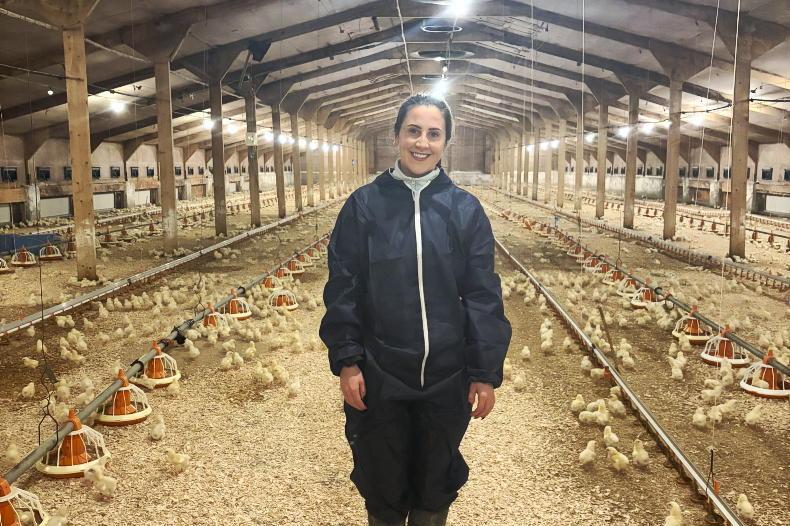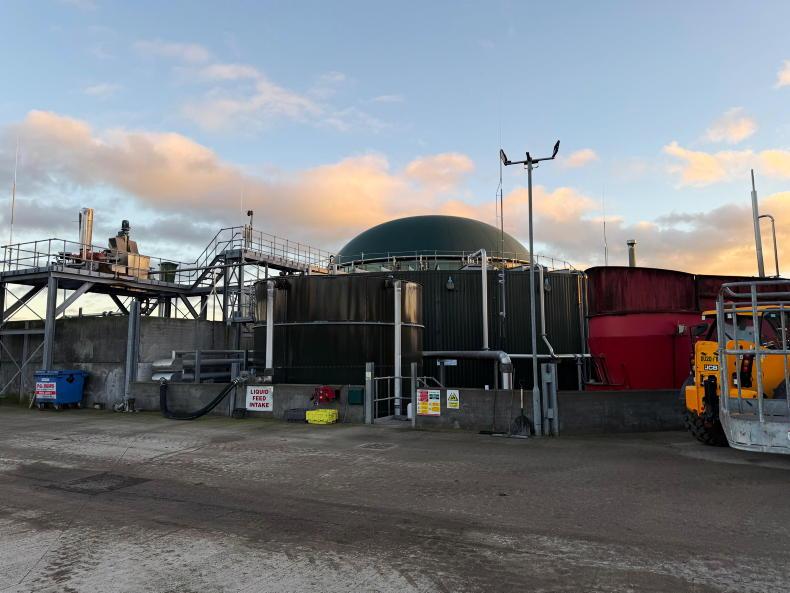Country Crest has strongly challenged and appealed Fingal County Council’s decision to refuse planning permission for an anaerobic digestion (AD) plant at its Lusk premises.
The farming and food company applied for planning permission last year to build an AD plant to produce renewable biomethane gas at its food production facilities in Lusk, Co Dublin.
The company had previously secured planning permission for an AD plant on the site in 2012, and after obtaining an extension in 2018, that permission expired in 2023.
The project
Country Crest submitted a new application last year to build the plant on a 18ac site adjoining its existing food processing facility in Lusk. The proposed AD plant would be supplied with around 60,000 tonnes of feedstock per year, consisting mainly of grass and whole-crop silage, vegetable and food processing by-products, slurry and manures and poultry litter (see Table 1).
Agricultural whole-crop and grass silage will be grown by Country Crest—which farms around 3,000 acres—and by other growers in the area. The renewable gas produced will be injected into the national gas network, which is connected to the company’s on-site onion facility.
The plant is expected to produce approximately 49,045 tonnes of liquid digestate and 9,342 tonnes of solid digestate annually.
The solid digestate will be stored in a roofed bunker, while the liquid digestate will be stored in sealed lagoons.
Digestate will be collected by registered farmers for use in growing feedstock and will also be used by the company to reduce its reliance on chemical fertilisers.
Reasons
The council refused permission in February on three grounds. It argued that the proposed development would not be directly connected to, nor serve, the local rural community, as the majority of the raw materials required for the AD process would be sourced from outside the local area.
In its decision, the planner stated that using land for an AD plant is considered akin to an industrial use of land, or could also be characterised as an agribusiness.
The planner concluded that the proposed development is unacceptable, as such uses are specifically prohibited in “RU-zoned” areas under the Fingal Development Plan 2023–2029, and would be contrary to proper planning and sustainable development.
The council also claimed that the proposed development would be visually obtrusive and would seriously injure the amenities of the area. It also stated that, in the absence of a Road Safety Audit, the Local Authority could not properly assess potential road safety risks associated with the development.
Strongly contested
The county council’s decision to refuse planning permission was appealed to An Bord Pleanála by Country Crest in March. In its appeal, the company strongly contested the decision. The appeal states that “Each planning application must be treated on its own merits and taken at face value.
The tone of the planner’s report is somewhat disingenuous in that it fails to accept the bona fides of this application.”
Country Crest also claims that the “planner’s report fails to properly interpret the nature of the proposed development in assessing the principle of same.”
In their submission, Michael and Gabrielle Hoey stated that sustainable farming is at the heart of everything they do, and the AD proposal is a further extension of this philosophy.
They outlined their long history of investment in renewable energy on-site, including two wind turbines and a solar energy project, which will make the premises self-sufficient in electricity from Q3 2025.
They argued that the project would give many local tillage farming families an opportunity to diversify and allow them to sell produce from their farms without being dictated by global commodity market prices.
Local cereal growers would have the opportunity to supply feedstock to the AD plant, establishing forward contract prices with Country Crest to help secure the profitability of their family farms.
Feedstock supply
Country Crest strongly disputed the planner’s comment that the proposed AD plant would not be directly connected to, or serve, the local rural community.
In its appeal, the company highlighted that it currently employs approximately 500 people at its site in Rathmooney, Lusk, with a weekly wage bill of around €500,000. They argued that the AD plant would further enhance its business and deepen its ties with the local community.

Pictured on their family farm in North Co Dublin were Michael and Gabriel Hoey who farm the land that their grandparents started farming in 1910. / Maxwell Photography
The appeal noted that 90% of the feedstock for the plant would be secured within Fingal, through existing supply chains with local farmers. Whole crop silage (10,000 tonnes) and grass and cover crop silage (24,500 tonnes) would also be 100% locally sourced, supporting Fingal farmers, it said.
The appeal continued: “We have shown that there are significant local ties already established with this farm and other local farmers.” It also outlined that the slurry (17,080 tonnes) and cattle manure (1,080 tonnes) would predominantly be sourced from farms within Fingal.
Vegetable and food by-products (750 tonnes) would be sourced entirely onsite, while the poultry litter (7,000 tonnes), would be sourced primarily from Bellview Eggs in Drogheda (7%) and the Chicken Litter Recycling Co-Op in Monaghan (3%).
Zoning
The issue of constructing an AD plant on land zoned as RU by Fingal County Council was also hotly contested. Country Crest argued that the AD facility should not be misclassified as an industrial development, but rather recognised as a rural enterprise that supports agriculture and sustainability.
They maintained that AD is widely recognised as a farm-based utility that enhances agricultural efficiency by managing on-site byproducts and producing renewable energy.
The appeal referenced the Fingal Development Plan, which allows for ‘utility installations’ within RU-zoned land – particularly where such installations serve rural or agricultural needs.
Country Crest contended that the proposed AD facility functions as an agricultural utility by processing farm byproducts into useful outputs, thereby directly supporting and improving farming operations.
Unacceptable
Having cited the climate crisis, the National Biomethane Strategy, and the need to develop agri-led, farmer-centric plants, they said it was “completely unacceptable that the Planning Authority failed to properly consider this proposal and instead reached the irrational conclusion that it was akin to industrial development.”
“The statements in the planner’s report show a complete lack of understanding of the nature of the proposal and how it is intended to operate as an ancillary part of a major farming and food supplier in this country,” the appeal continued.
It also argued that two of the refusal reasons—traffic and visual impact—could have been easily addressed through a request for further information.
Instead, the Planning Authority chose to refuse permission outright, placing an unnecessary burden on An Bord Pleanála to assess issues that could have been resolved at local level, the appeal stated.
Objections
The project received a number of objections, many of which argued that the site is not zoned for this type of development.
Country Crest has strongly challenged and appealed Fingal County Council’s decision to refuse planning permission for an anaerobic digestion (AD) plant at its Lusk premises.
The farming and food company applied for planning permission last year to build an AD plant to produce renewable biomethane gas at its food production facilities in Lusk, Co Dublin.
The company had previously secured planning permission for an AD plant on the site in 2012, and after obtaining an extension in 2018, that permission expired in 2023.
The project
Country Crest submitted a new application last year to build the plant on a 18ac site adjoining its existing food processing facility in Lusk. The proposed AD plant would be supplied with around 60,000 tonnes of feedstock per year, consisting mainly of grass and whole-crop silage, vegetable and food processing by-products, slurry and manures and poultry litter (see Table 1).
Agricultural whole-crop and grass silage will be grown by Country Crest—which farms around 3,000 acres—and by other growers in the area. The renewable gas produced will be injected into the national gas network, which is connected to the company’s on-site onion facility.
The plant is expected to produce approximately 49,045 tonnes of liquid digestate and 9,342 tonnes of solid digestate annually.
The solid digestate will be stored in a roofed bunker, while the liquid digestate will be stored in sealed lagoons.
Digestate will be collected by registered farmers for use in growing feedstock and will also be used by the company to reduce its reliance on chemical fertilisers.
Reasons
The council refused permission in February on three grounds. It argued that the proposed development would not be directly connected to, nor serve, the local rural community, as the majority of the raw materials required for the AD process would be sourced from outside the local area.
In its decision, the planner stated that using land for an AD plant is considered akin to an industrial use of land, or could also be characterised as an agribusiness.
The planner concluded that the proposed development is unacceptable, as such uses are specifically prohibited in “RU-zoned” areas under the Fingal Development Plan 2023–2029, and would be contrary to proper planning and sustainable development.
The council also claimed that the proposed development would be visually obtrusive and would seriously injure the amenities of the area. It also stated that, in the absence of a Road Safety Audit, the Local Authority could not properly assess potential road safety risks associated with the development.
Strongly contested
The county council’s decision to refuse planning permission was appealed to An Bord Pleanála by Country Crest in March. In its appeal, the company strongly contested the decision. The appeal states that “Each planning application must be treated on its own merits and taken at face value.
The tone of the planner’s report is somewhat disingenuous in that it fails to accept the bona fides of this application.”
Country Crest also claims that the “planner’s report fails to properly interpret the nature of the proposed development in assessing the principle of same.”
In their submission, Michael and Gabrielle Hoey stated that sustainable farming is at the heart of everything they do, and the AD proposal is a further extension of this philosophy.
They outlined their long history of investment in renewable energy on-site, including two wind turbines and a solar energy project, which will make the premises self-sufficient in electricity from Q3 2025.
They argued that the project would give many local tillage farming families an opportunity to diversify and allow them to sell produce from their farms without being dictated by global commodity market prices.
Local cereal growers would have the opportunity to supply feedstock to the AD plant, establishing forward contract prices with Country Crest to help secure the profitability of their family farms.
Feedstock supply
Country Crest strongly disputed the planner’s comment that the proposed AD plant would not be directly connected to, or serve, the local rural community.
In its appeal, the company highlighted that it currently employs approximately 500 people at its site in Rathmooney, Lusk, with a weekly wage bill of around €500,000. They argued that the AD plant would further enhance its business and deepen its ties with the local community.

Pictured on their family farm in North Co Dublin were Michael and Gabriel Hoey who farm the land that their grandparents started farming in 1910. / Maxwell Photography
The appeal noted that 90% of the feedstock for the plant would be secured within Fingal, through existing supply chains with local farmers. Whole crop silage (10,000 tonnes) and grass and cover crop silage (24,500 tonnes) would also be 100% locally sourced, supporting Fingal farmers, it said.
The appeal continued: “We have shown that there are significant local ties already established with this farm and other local farmers.” It also outlined that the slurry (17,080 tonnes) and cattle manure (1,080 tonnes) would predominantly be sourced from farms within Fingal.
Vegetable and food by-products (750 tonnes) would be sourced entirely onsite, while the poultry litter (7,000 tonnes), would be sourced primarily from Bellview Eggs in Drogheda (7%) and the Chicken Litter Recycling Co-Op in Monaghan (3%).
Zoning
The issue of constructing an AD plant on land zoned as RU by Fingal County Council was also hotly contested. Country Crest argued that the AD facility should not be misclassified as an industrial development, but rather recognised as a rural enterprise that supports agriculture and sustainability.
They maintained that AD is widely recognised as a farm-based utility that enhances agricultural efficiency by managing on-site byproducts and producing renewable energy.
The appeal referenced the Fingal Development Plan, which allows for ‘utility installations’ within RU-zoned land – particularly where such installations serve rural or agricultural needs.
Country Crest contended that the proposed AD facility functions as an agricultural utility by processing farm byproducts into useful outputs, thereby directly supporting and improving farming operations.
Unacceptable
Having cited the climate crisis, the National Biomethane Strategy, and the need to develop agri-led, farmer-centric plants, they said it was “completely unacceptable that the Planning Authority failed to properly consider this proposal and instead reached the irrational conclusion that it was akin to industrial development.”
“The statements in the planner’s report show a complete lack of understanding of the nature of the proposal and how it is intended to operate as an ancillary part of a major farming and food supplier in this country,” the appeal continued.
It also argued that two of the refusal reasons—traffic and visual impact—could have been easily addressed through a request for further information.
Instead, the Planning Authority chose to refuse permission outright, placing an unnecessary burden on An Bord Pleanála to assess issues that could have been resolved at local level, the appeal stated.
Objections
The project received a number of objections, many of which argued that the site is not zoned for this type of development.











SHARING OPTIONS